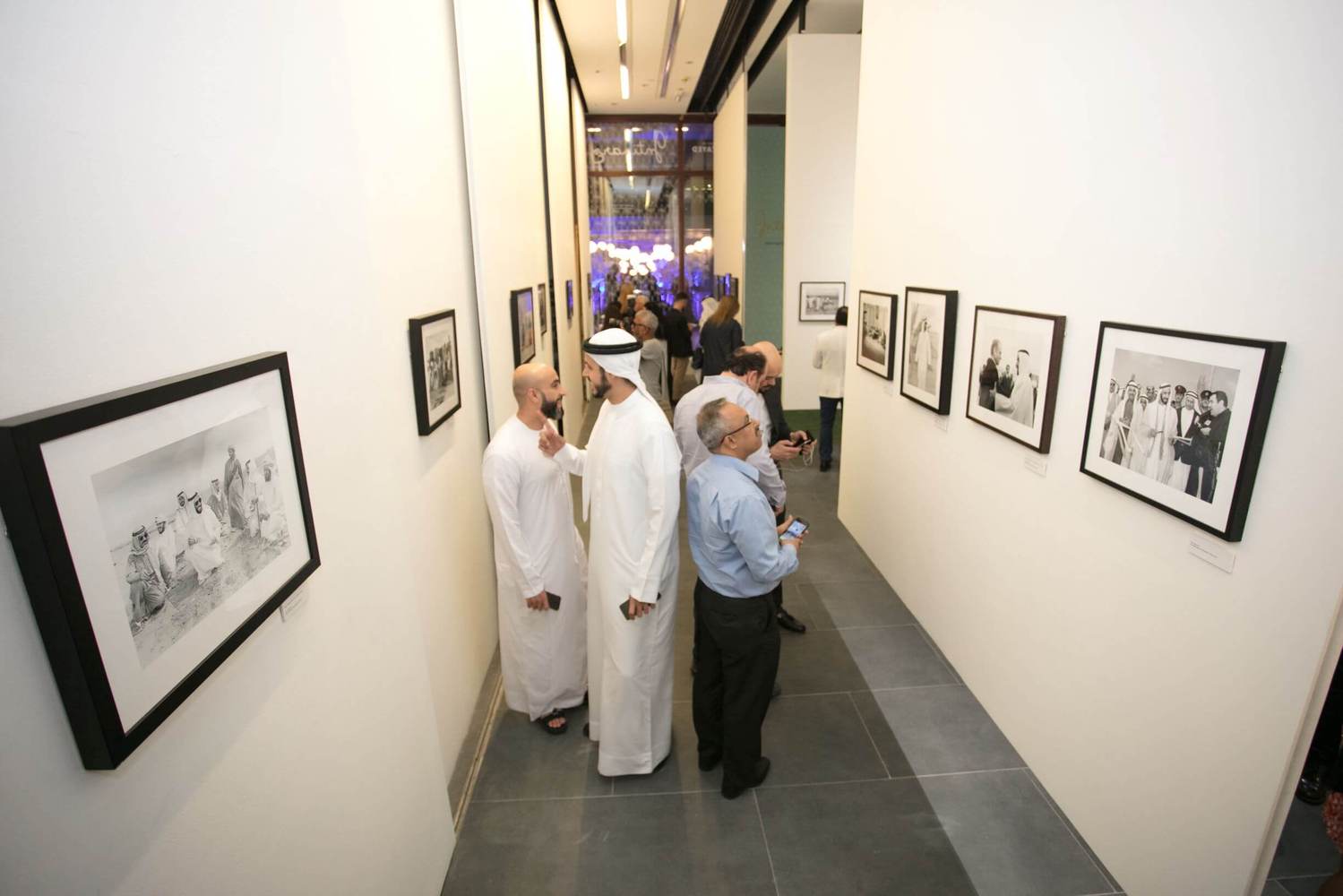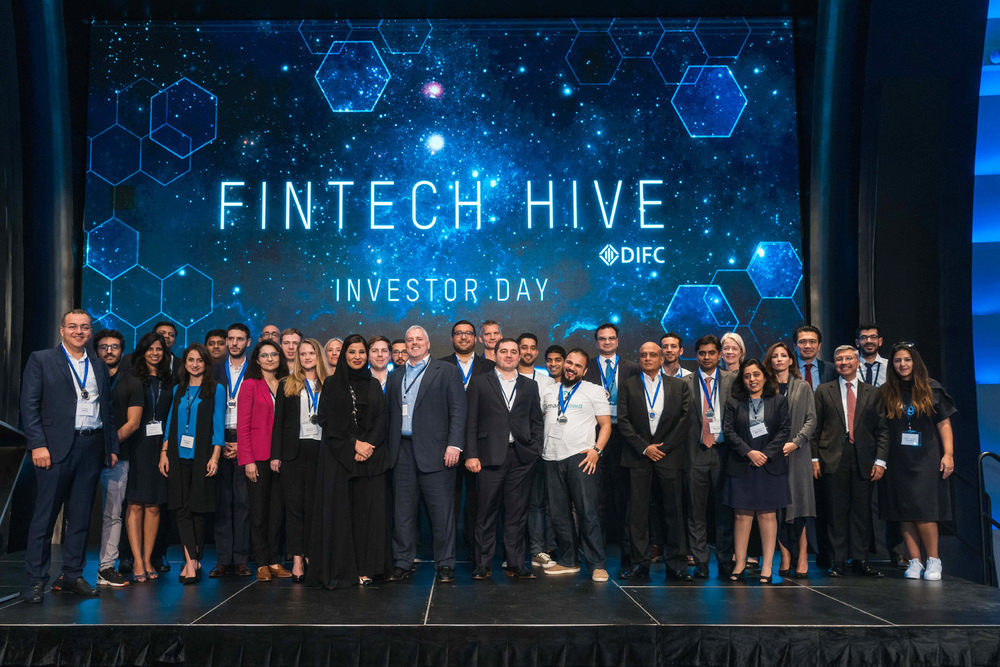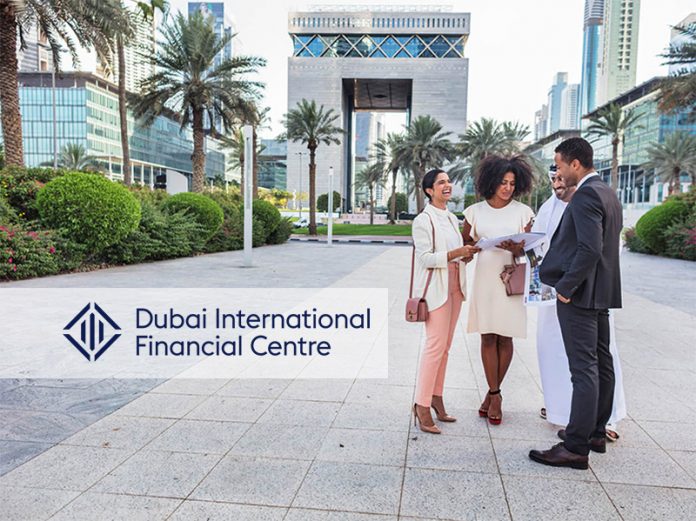DIFC Ranked 8th in the Global Financial Centres Index (GFCI)
Known to have a 15-year track record of facilitating trade and investment flows across the MEASA region, the DIFC connects fast-growing markets with Asian, European and the American economies through Dubai. To date, the Centre is further strengthening their plans and programmes in hopes to drive growth in the region.
Dubai International Financial Centre (DIFC), one of the world’s most advanced financial centres, and the leading financial hub for the Middle East, Africa and South Asia (MEASA) regions, showed its commitment and contribution in boosting UAE’s economy on the first half of 2019.
Home to an internationally recognised, independent regulator and a judicial system with an English common law framework, DIFC sustained their growth by welcoming more than 250 new companies, fueling the creation of over 660 jobs, boosting the Centre’s combined workforce to more than 24,000 professionals in over 2,300 active registered companies, therefore resulting in the occupancy of 99 percent of DIFC-owned buildings. This entails a 14 percent increase year-on-year and a seven percent increase since the end of 2018.
Now, the Centre boasts more than 671 financial related firms, showing an 11 percent increase from last year. The newly-joined firms include Malaysia’s Maybank Islamic Berhad, U.S.A’s Cantor Fitzgerald, and Australia’s Atlas Wealth Management and Mauritius Commercial Bank. Leading non-financial firms including Guidepoint MEA, Medtronic Finance Hungary Kft. and Network International, have also joined.
Driving MEASA development
DIFC has announced new expansion plans, supporting the economic future of Dubai and the UAE following the strong demand witnessed from financial institutions worldwide. The Centre’s growth plan is expected to triple the scale of DIFC and enables them to further Dubai’s growth and development, diversify and transform the financial services sector within the region.
Arif Amiri, Chief Executive Officer of DIFC Authority, said they are continuing to cement their global position as a pivotal business and finance hub, while making significant headway towards meeting their 2024 targets.
“Our focus on innovation and technology is delivering a blueprint for sustainable growth as we continue our journey towards driving the future of finance. DIFC’s emphasis on transforming its lifestyle offering, alongside strategic investments within technology and FinTech means we are confident about reinforcing our position as a leading global financial Centre – a great place to live, work, play and do business,” he mentioned.
They have also received 425 applications from rising firms operating in the RegTech, Islamic FinTech, InsurTech and broader FinTech sectors, for the third cohort of its DIFC FinTech Hive accelerator programme, a 42 percent increase from last year. This marked a three-fold increase from their inaugural cycle in 2017, exemplifying the pace of evolution of this fast-growing industry, and the preference of Dubai and the DIFC as the home for FinTech firms looking to scale their business across MEASA.
In consultation with the Centre’s FinTech Hive’s network of 21 participating partners, including Abu Dhabi Islamic Bank (ADIB), Emirates Islamic, Emirates NBD, Finablr, HSBC, National Bank of Fujairah, Noor Bank, Riyad Bank, Standard Chartered, and Visa, 31 innovative global start-ups have been selected to participate in the third edition of DIFC FinTech Hive’s 2019 accelerator programme.
InsurTech start-ups are expected to work closely with leading insurance players such as AXA Gulf, Noor Takaful (Ethical Insurance), Zurich Insurance Company Ltd (DIFC), AIG, Insurance House, Cigna Insurance Middle East S.A.L. and MetLife, to signify their developing game-changing solutions that will address the ever-growing requirements of the industry.
DIFC’s FinTech community is known to benefit from building strong relationships they have continued with key international accelerators through ongoing delegations and partnership agreements. During the first half of this year, the Centre has signed four MoUs, such as Dubai SME to help foster entrepreneurship in the region and further the National Innovation Agenda, and three agreements with FinTech Saudi, Milan’s FinTech District and FinTech Istanbul.
Sustainability in efforts
The Centre remained knowledge sharing and thought leadership as their core focus for this financial year. In recognition of DIFC’s efforts towards building one of the world’s leading financial centres over the last 15 years, the Centre was the only free zone in the UAE to receive the Dubai Quality Award in April 2019. The award symbolises the financial hub’s hard work and dedication in building a sustainable and progressive business environment.
Also, the DIFC Academy offers world class financial and legal education through strategic partnerships with 26 leading educational institutions and government entities and is part of their efforts to support continued professional growth and strengthen their talent pool. To date, the academy has seen more than 5,500 graduates successfully undertake executive education courses and programmes in finance, business and law, and two dedicated Masters of Laws (LLM) programmes that they offer.
In May 2019, another milestone for sustainable business growth was achieved by Majid Al Futtaim, who launched the world’s first benchmark corporate Green Sukuk at Nasdaq Dubai, which supports Dubai’s growth as the global capital of Islamic economy. The corporation’s investment will be used to finance and re-finance the group’s existing and future projects, such as green buildings, renewable energy, sustainable water management, and energy efficiency.
• 2,289 is the total number of registered companies currently operating in the DIFC – a 14 percent increase year-on-year and a 7 percent increase since the end of 2018.
• Over 250 new companies, a 10 percent increase from the same period in 2018.
• DIFC’s financial technology ecosystem doubles in size in first half of 2019 – now includes over 200 companies, of which more than 100 are fully-licensed FinTech firms – a three-fold growth since the end of 2018.
• 425 applications received for third cohort of FinTech Hive accelerator programme – three-fold growth since 2017 and 42 percent increase from 2018.
Working under a sophisticated framework
DIFC has been known to be at the forefront of improving its legislative infrastructure to provide the community with easier access to opportunities within the MEASA region, while providing greater stability and certainty when doing business in the area. Its robust legal and regulatory framework remains the most sophisticated and business-friendly Common Law jurisdiction in the region, aligned with international best practice.
DIFC continues to support the development of the financial services sector in the region and fosters the UAE’s economic growth by encouraging the progress of the domestic funds market. In May 2019, the Dubai Financial Services Authority (DFSA), the Centre’s independent regulator, had announced that a new regime will be facilitating the passporting of funds, in collaboration with UAE’s other financial regulators.
The UAE passporting regime is a regulatory mechanism for the promotion and supervision of investment funds that encourages foreign licensed firms in financial free zones based in other countries to enter the local market.
As part of DIFC’s blueprint for the transformation of the Centre and in line with global retirement savings trends, the financial hub launched the Employee Workplace Savings (DEWS) scheme, which favors the evolution of end-of-service benefits from a defined benefit scheme to a defined contribution scheme, while offering a voluntary savings component for its employees.
With the aim of ensuring businesses and investors who can operate across the region with confidence, the Centre has introduced a new Insolvency Law in June 2019, enacted by His Highness Sheikh Mohammed bin Rashid Al Maktoum. The law facilitates a more efficient and effective bankruptcy restructuring regime for stakeholders operating in DIFC. This continued to create an attractive environment for the 24,000 individuals based in the Centre to thrive, while having their needs and interests as both employers and employees protected and balanced. An Employment Law was also introduced to address key employment issues such as paternity leave, sick pay, and end-of-service settlements.
Not only that, but they have also unveiled a unified, simplified and more expansive Prescribed Companies regime that quickens structuring and financing, making the process more flexible and more cost-effective. The new regime encompasses structures previously offered by DIFC, such as Intermediate Special Purpose Vehicles (ISPVs) and Special Purpose Companies (SPCs), which contributed significantly to a robust track of prospective businesses from the aviation financing sector, generating substantial interest from family offices looking to utilise these structures in their succession planning.


Bringing lifestyle and retail experience to life
Hilton Hotels & Resorts announced the opening of Waldorf Astoria DIFC during the first half of the 2019. The 275-key hotel occupies the 18th to 55th floors of the Burj Daman complex, with 46 suites and 28 residential suites offering elegant and outstanding views of the Downtown Dubai skyline.
DIFC has also welcomed a number of new culinary concepts to the gourmet scene including “Marea”, a New York fine dining experience led by multi-Michelin starred chef, Michael White, and Grecian inspired “Avli by Tasha”. In March, it was announced that renowned chef Nusret Gökçe was set to launch casual dining concept “Saltbae” this year.
DIFC is home to one of the region’s largest collections of public art. With sculptures from internationally renowned artists, such as Manolo Valdés, it has become the foundation for initiatives such as the One Mile Gallery, in partnership with Brand Dubai, which showcases the best of local, regional and international design and promotes art, innovation and entrepreneurship.
Its seventh elite art gallery, Sconci Gallery was welcomed to the DIFC as well. The gallery was established in Rome in 1977, and has collaborated with leading artists and international auction houses to showcase collections from the masters of modern and contemporary art, and emerging artists.
In March 2019, the Centre hosted the most successful edition of the hugely popular Art Nights in the last five years. Art Dubai 2019 marked the beginning of Dubai’s coveted art season and saw participation from international and local art galleries and artists, and included installations accompanied by electric musical performances and light installations from interdisciplinary artists.
Continued Growth and Development
DIFC is committed to becoming the world’s top financial centre and bringing the future of finance in the region. This dedication is demonstrated through its continued investment in driving innovation and pioneering the digitalisation of the rapidly expanding financial services sector and accumulation and continued facilitation of financial knowledge and talent for its people.
Amiri said, “During the last 15 years, DIFC has firmly reinforced its position as one of the world’s top financial centres. Our focus is to become the most advanced financial centre in the world and the only way to do this is to ensure we stay ahead of the curve.”
Ensuring the well-being of the DIFC community by continuing to attract skilled and talented people, nurturing the brightest minds to generate innovative ideas, and working towards maintaining a secure future for its people and the future generation in its community are also the core principles of the DIFC Authority that contributed to the Centres’ success.
Amiri believed and concluded that “The continued growth and development of the DIFC Authority team highlights that today, the Centre is seen not just as the jurisdiction of choice for business but also as an employer of choice. We are proud of the environment we have created, that attracts top talent but also helps them grow within the organisation, succeeding into leadership roles.”
Dubai International Financial Centre (DIFC) is one of the world’s most advanced financial centres, and the leading financial hub for the Middle East, Africa and South Asia (MEASA), which comprises 72 countries with an approximate population of 3 billion and a nominal GDP of USD 7.7 trillion.
The Centre’s vision is to drive the future of finance. Today, it offers one of the region’s most comprehensive FinTech and venture capital environments, including cost-effective licensing solutions, fit-for-purpose regulation, innovative accelerator programmes, and funding for growth-stage start-ups.
Comprising a variety of world-renowned retail and dining venues, a dynamic art and culture scene, residential apartments, hotels and public spaces, DIFC continues to be one of Dubai’s most sought-after business and lifestyle destinations.

































































